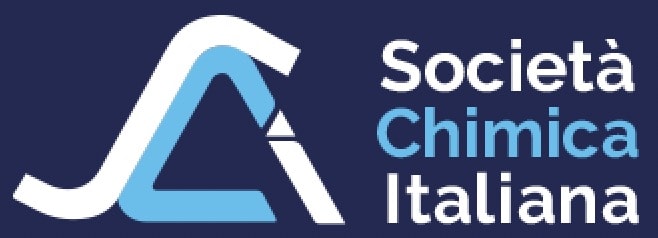- 2 Queen Street , USA
- 888 666 000
- [email protected]
- Italian
- English
Links Utili
AOAC INTERNATIONAL is a not-for-profit association dedicated to the development and validation of analytical methods, the improvement of laboratory quality, and the professional development of scientists. AOAC sponsors the AOAC Laboratory Proficiency Testing Program, an A2LA accredited quality assurance program. The AOAC Research Institute (RI), a subsidiary of AOAC, administers the Performance Tested Methods Program, and provides Consulting Services to assist development of proprietary and/or commercial analytical methods. Association publications include the Journal of AOAC International (available online), Official Methods of Analysis of AOAC International (available online), and the bi-monthly magazine, Inside Laboratory Management.
The Federal Institute for Materials Research and Testing (BAM) is a scientific-technological institute under the authority of the Federal Ministry of Economics. In accordance with a decree of the Federal Minister of Economics dates October 1, 1995 BAM promotes the development of German industry by carrying out research on materials and by further developing testing techniques and chemical safety engineering. The institute collects and makes the results of its own and others scientific work available to the general public in suitable form.
BAM's services are available upon request to associations, industry, consumer's associations as well as private applicants. It also advises ministries, courts and other authorities. The institute is obliged to be absolutely impartial and objective.
Currently BAM employs almost 1500 people of whom at least 520 are scientists from various technical disciplines and fields of natural science. They work in research and development, testing and investigation, in the field of consulting and information, and contribute to the different national and international standardisation institutions.
Eurachem, a network of organisations in Europe having the objective of establishing a system for the international traceability of chemical measurements and the promotion of good quality practices. It provides a forum for the discussion of common problems and for developing an informed and considered approach to both technical and policy issues. It provides a focus for analytical chemistry and quality related issues in Europe.
CITAC arose out of an international workshop held in association with the Pittsburgh Conference in Atlanta in March 1993. The aim of this workshop was to discuss how analytical activities could be developed to meet the needs of the 21st century, and it identified a wide variety of issues to be addressed to ensure that analytical measurements made in different countries or at different times are comparable.
ILAC is an international cooperation of laboratory and inspection accreditation bodies.
It provides a focus for:
• Developing and harmonising laboratory and inspection accreditation practices
• Promoting laboratory and inspection accreditation to industry, governments, regulators and consumers
• Assisting and supporting developing accreditation systems
• Global recognition of laboratories and inspection facilities via the ILAC Arrangement, thus facilitating acceptance of test, inspection and calibration data accompanying goods across national borders
The ISE (International Society of Electrochemistry) is aimed at serving the worldwide electrochemical community and that of related disciplines through the advancement of electrochemical science and technology, the dissemination of scientific and technological knowledge, and promotion of international cooperation.
The International Union of Pure and Applied Chemistry (IUPAC) serves to advance the worldwide aspects of the chemical sciences and to contribute to the application of chemistry in the service of Mankind. As a scientific, international, non-governmental and objective body, IUPAC can address many global issues involving the chemical sciences.
European Association for Chemical and Molecular Sciences.
The division of Analytical Chemistry of the European Association for Chemical and Molecular Sciences and its mission:
• DAC is a network of chemical societies and their members working in all fields of analytical sciences
• DAC gives a voice to the interdisciplinary field of analytical sciences
• DAC is based in Europe and aims at close s to related institutions all over the world.
The Training & Education section of the website has been divided into the three development stages of analytical scientists. The 'Analysts' section is aimed at those whose work is to make qualitative and quantitative measurements or those who manage laboratories making such measurements. This section may also be relevant to university staff. The 'Universities' section has material of interest to undergraduate and graduate students and academic staff. The 'Schools & Colleges' section is of relevance to school teachers and students in year 11 and above.
Founded in 1901, NIST is a non-regulatory federal agency within the U.S. Commerce Department's Technology Administration. NIST's mission is to promote U.S. innovation and industrial competitiveness by advancing measurement science, standards, and technology in ways that enhance economic security and improve our quality of life.
The Training & Education section of the website has been divided into the three development stages of analytical scientists. The 'Analysts' section is aimed at those whose work is to make qualitative and quantitative measurements or those who manage laboratories making such measurements. This section may also be relevant to university staff. The 'Universities' section has material of interest to undergraduate and graduate students and academic staff. The 'Schools & Colleges' section is of relevance to school teachers and students in year 11 and above.
ACCREDIA è l'Ente unico nazionale di accreditamento, riconosciuto dallo Stato il 22 dicembre 2009, nato come Associazione senza scopo di lucro, dalla fusione di SINAL e SINCERT e con il contributo di SIT - INRIM, ENEA e ISS.
Il Consiglio universitario nazionale (CUN) è organo elettivo di rappresentanza del sistema universitario.
